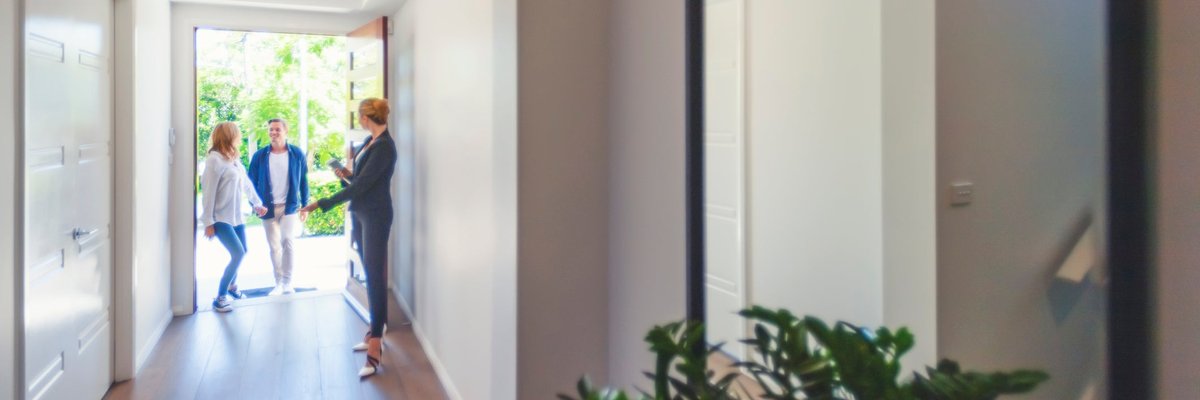Paying Cash for Your Home Is a Bad Idea for These 4 Reasons
KEY POINTS
- As mortgage rates skyrocket, more people are buying with cash.
- Paying cash for a home locks up a lot of money in an asset that isn't liquid.
- It's a wiser move to make a robust down payment and sign on for a mortgage, even if you end up refinancing when rates go down.
It might get you on the property ladder, but at what cost?
After rock-bottom interest rates during the first phase of the COVID-19 pandemic, the mortgage chickens have finally come home to roost. In October 2021, the average U.S. mortgage interest rate for a 30-year fixed-rate mortgage was just 2.99%. As of this writing, it's 6.66%. Ouch. With an increase like that, combined with the extreme competition in many housing markets, along with a shortage of available homes for all who want to buy them, it's no wonder that a lot of people are making cash offers on a house. Is it a good idea to forgo taking out a mortgage loan and buying with cash (if you can afford it)? Maybe not.
1. Homes aren't a liquid asset
While the prevailing wisdom in this country states that homeownership is the only key to wealth (spoiler alert: it's not the only way), homes aren't a liquid asset the way money in a savings account or even an investment account are. A liquid asset is something you own that can easily and quickly be converted to cash. A house you own doesn't fall under this designation because of all the hoops you'd have to jump through to sell it. If you had $300,000 in cash and sank all or even most of it into a home purchase, then had an emergency where you needed a chunk of money, you would really be in a tight spot. You could try to sell your house, but there's no guarantee you'd be able to find a qualified buyer quickly. And if you did, you'd still need to wait on the sale to close if your buyer was using a mortgage to purchase your house, which would likely take 30 to 45 days.
2. You may not have money for repairs…
Another problem with paying cash for a home is that you may end up leaving yourself ill able to afford any repairs. Ideally, you aren't buying a house (for cash or otherwise) without having a home inspection performed. However, a home inspection won't uncover everything. You could move into your house and after a few weeks or months, have to replace your air conditioner or hot water heater. If you paid cash for your home and left yourself without robust savings, you might have to go into debt to fund an expensive home repair.
3. …Or renovations
If you tie all your money up in the purchase of your home, you might be left without any money to undertake fun renovations. Perhaps your new home has good bones, but the kitchen is a little dated, and you really love to cook and entertain. You might have to wait a while and save up the money to pay for a kitchen renovation. This isn't a tragedy, of course, but it might be a bit of a bummer if you've been renting homes your entire adult life and were excited to finally make your own house into the perfect home for you.
4. You may have to settle
If you're dead-set on buying a home in cash and avoiding a high mortgage interest rate, you might have to settle for the house you can afford in cash. While it's a bad idea to live beyond your means and attempt to buy more house than you can comfortably afford, you may be able to swing a more expensive home if you're getting a mortgage. If your cash reserves amount to $200,000, but a mortgage calculator shows you could comfortably afford a $300,000 home with a mortgage, based on your income and other bills, you may be missing out on the chance to buy something you'll really love for more money.
What to do instead
Buying a home with a mortgage is certainly no tragedy; even billionaire investor Warren Buffett is a fan of the traditional 30-year fixed-rate mortgage. And if the thought of being stuck with a mortgage payment for 30 years is too much to bear, you can opt for a 15-year mortgage, or go with a mortgage lender that offers even more flexibility with loan terms. While a 20% down payment is recommended, if you have a lot of cash at the ready, you can make a bigger down payment without tying up all your money in your house purchase. In fact, making a larger down payment will make you a more attractive buyer, both to home sellers and to mortgage lenders. And even if you get stuck with a higher interest rate than you wanted, you can refinance when rates come back down.
It's been a rough year for wannabe home buyers, and while it may seem like a great idea to buy in cash if you can afford to, these reasons should give you cause to think twice.
Our Research Expert
We're firm believers in the Golden Rule, which is why editorial opinions are ours alone and have not been previously reviewed, approved, or endorsed by included advertisers. Motley Fool Money does not cover all offers on the market. Motley Fool Money is 100% owned and operated by The Motley Fool. Our knowledgeable team of personal finance editors and analysts are employed by The Motley Fool and held to the same set of publishing standards and editorial integrity while maintaining professional separation from the analysts and editors on other Motley Fool brands. Terms may apply to offers listed on this page.



